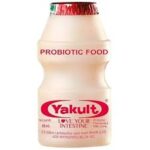Varicose veins are more than just a cosmetic issue—they can cause discomfort, swelling, and even lead to more serious health conditions if left untreated. Thanks to advancements in medical technology, you no longer need to rely on painful vein stripping or extensive surgery. A vein treatment specialist can now offer a wide range of minimally invasive options that are safe, effective, and involve little to no downtime.
Understanding what are the treatment options for varicose veins is the first step toward healthier legs and improved comfort. From thermal ablation to foam sclerotherapy and laser treatments, patients today have access to a host of procedures tailored to their condition and lifestyle.
Why Choose Minimally Invasive Treatments for Varicose Veins?
Minimally invasive treatments are growing in popularity for several reasons. Patients prefer them because they are typically performed in an outpatient setting, require only local anesthesia, and result in faster recovery times. These procedures also reduce the risk of scarring and infection compared to traditional surgical options.
A vein treatment specialist can assess your condition and recommend the best approach based on the size, location, and severity of your varicose veins. These modern methods not only treat the visible veins but also address the underlying issues, such as venous insufficiency.
How Does Endovenous Laser Treatment (EVLT) Work?
One of the most popular answers to what are the treatment options for varicose veins is Endovenous Laser Treatment (EVLT). This minimally invasive procedure involves using laser energy to close off the faulty veins.
Under ultrasound guidance, the vein treatment specialist inserts a laser fiber into the vein. The laser delivers controlled heat, causing the vein to collapse and eventually be absorbed by the body. Blood is naturally rerouted to healthy veins.
The advantages of EVLT include:
- Performed in-office under local anesthesia
- Quick recovery (most people return to work the next day)
- No scarring and minimal discomfort
This technique is particularly effective for larger varicose veins and is covered by most insurance providers when deemed medically necessary.
What Is Radiofrequency Ablation (RFA)?
Similar in concept to EVLT, Radiofrequency Ablation (RFA) uses radiofrequency energy instead of laser heat to close off varicose veins. A catheter is inserted into the affected vein, and radio waves heat the vein walls, causing them to seal shut.
The benefits of RFA include:
- Less postoperative pain than traditional surgery
- Fast return to daily activities
- Very high success rate
Patients wondering what are the treatment options for varicose veins often find RFA to be a comfortable and effective choice, especially when performed by an experienced vein treatment specialist.
Is Foam Sclerotherapy Effective for Smaller Veins?
Foam sclerotherapy is an advanced technique used to treat smaller varicose veins and spider veins. The procedure involves injecting a medicated foam directly into the vein, causing it to collapse and fade over time.
This method is particularly useful for:
- Treating veins that are too small for catheter-based procedures
- Recurring varicose veins after previous treatments
- Patients looking for cosmetic improvement
The procedure takes only 30–45 minutes, and multiple sessions may be needed depending on the severity of the condition. Since it’s minimally invasive, patients can typically resume normal activities the same day.
What Is VenaSeal™ and How Is It Different?
VenaSeal™ is a newer FDA-approved method that uses a medical adhesive to seal the affected vein shut. Unlike EVLT or RFA, VenaSeal does not use heat, which means there’s no need for tumescent anesthesia (multiple injections around the vein to numb the area).
Key advantages of VenaSeal include:
- Virtually pain-free
- No need for compression stockings afterward
- Immediate return to daily routines
Although not all insurance plans cover VenaSeal, it is a revolutionary alternative that more vein treatment specialists are offering due to its effectiveness and convenience.
How Do I Know Which Treatment Is Right for Me?
Every case of varicose veins is unique. The best way to determine the right course of action is by scheduling a consultation with a qualified vein treatment specialist. They will perform a thorough assessment, often including a venous ultrasound, to examine how well your veins are functioning and to identify any underlying issues.
From there, they’ll provide a customized treatment plan that may include one or more of the following:
- EVLT or RFA for deeper veins
- Foam sclerotherapy for surface veins
- VenaSeal for heat-free treatment
- Lifestyle recommendations for long-term vein health
When exploring what are the treatment options for varicose veins, your medical history, personal preferences, and the severity of the condition will all factor into the final recommendation.
What Can You Expect During Recovery?
One of the greatest benefits of minimally invasive vein treatments is the rapid recovery time. Most patients can walk out of the clinic and resume normal activities on the same day. Some procedures may require wearing compression stockings for a week or two, and it’s generally advised to avoid strenuous exercise for a short period.
Mild bruising or discomfort may occur, but these side effects typically resolve quickly. Most patients report immediate improvement in symptoms such as leg pain, heaviness, and swelling.
Are These Treatments Covered by Insurance?
In many cases, yes. If your varicose veins are causing pain, swelling, or other symptoms of venous insufficiency, your treatment is likely to be considered medically necessary. Most private insurance plans and Medicare will cover treatments like EVLT, RFA, and sometimes even VenaSeal or sclerotherapy.
Your vein treatment specialist can help submit the proper documentation, including diagnostic ultrasound results and medical history, to support your claim.
Final Thoughts: Are Minimally Invasive Treatments the Future of Vein Care?
Absolutely. The field of vein care has evolved significantly, providing patients with effective, safe, and convenient alternatives to surgery. Whether you’re dealing with mild spider veins or more severe varicose veins, today’s minimally invasive options can help you achieve lasting relief and healthier circulation.
Understanding what are the treatment options for varicose veins empowers you to take control of your vascular health. By working with a trusted vein treatment specialist, you can explore procedures that fit your needs, minimize downtime, and deliver outstanding results.
- Are There Minimally Invasive Treatments for Varicose Veins?
- Varicose veins are more than just a cosmetic issue—they can cause discomfort, swelling, and even lead to more serious health conditions if left untreated.
- what are the treatment options for varicose veins
Related posts:
 The Rise of the Probiotic Drink: A Wellness Staple for Gut and Liver Health
The Rise of the Probiotic Drink: A Wellness Staple for Gut and Liver Health
 Empowering Senior Living: A Comprehensive Look at Elder Care Services in India
Empowering Senior Living: A Comprehensive Look at Elder Care Services in India
 Inside the Mind of Jack Allen: Crafting Military Thrillers That Grip You
Inside the Mind of Jack Allen: Crafting Military Thrillers That Grip You
 How the Neurology and Mental Health Conference 2025 Empowers Patients
How the Neurology and Mental Health Conference 2025 Empowers Patients
 Dentist in Largo Florida – Expert Care with a Personal Touch at Blue Dental Largo
Dentist in Largo Florida – Expert Care with a Personal Touch at Blue Dental Largo
 What Are Common Myths About Laser Vaginal Tightening Treatment?
What Are Common Myths About Laser Vaginal Tightening Treatment?
 Multivitamin and Multimineral Supplements: Do You Need Them for Better Health?
Multivitamin and Multimineral Supplements: Do You Need Them for Better Health?
 How Regular Nature Walks Improve Physical And Mental Senior Wellbeing
How Regular Nature Walks Improve Physical And Mental Senior Wellbeing







